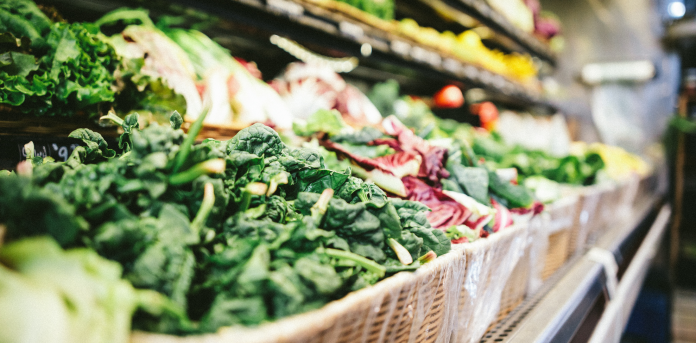We know that the best defense against sickness and infection is a strong immune system. And the best way to strengthen our immune systems is by long-term, healthy eating. But that is where we often fall short: sustaining a healthy lifestyle for the long term. That’s why I have written this article: to give you an important key that will help you sustain this life-giving lifestyle.
Healthy Eating Keeps You Healthy
As explained by Dr. Joel Fuhrman, “The immune system is the body’s defense system against irritants, toxins, infections, and the development of cancer. With an arsenal of ‘soldiers,’ such as T-cells, B-cells, antibodies, macrophages, etc., the immune system can detect, attack, and remove potential dangers to optimal health. A nutrient-dense eating style with a variety of immune supporting phytochemicals is required to maintain an effective immune system.”
Put another way, healthy eating will help keep you healthy. It really is that simple.
But how do you sustain this for the long haul? How do you avoid falling off the wagon and falling back into your old, unhealthy habits?
Some Practical Advice
Allow me to give you some practical advice. (I do as someone who ate poorly the first 59 years of his life, only to experience a dramatic, life-changing transformation over the last 6 years.)
The advice is simply this. Once you get into a healthy lifestyle, don’t deviate from it. Not even a little. Otherwise, you run the real risk of falling back. And, as my wife, Nancy, details in our book Breaking the Stronghold of Food, it’s a lot harder to get started again once you’ve fallen back.
That’s why former alcoholics (or, as some would describe themselves, recovering alcoholics) never drink alcohol. Not even a sip. Not even for a wedding or special celebration.
They realize that one wrong step could prove fatal. Just one drink, and they can be enslaved all over again.
It’s the same thing with unhealthy foods. It’s best to swear them off for life, especially if you are a recovering food addict (by which I mean you have previously been addicted to unhealthy eating).
Help us champion truth, freedom, limited government and human dignity. Support The Stream »
For several years, Nancy interacted with others on one of Dr. Fuhrman’s blogs, and she heard the same story over and over. “I was doing great for three years. I went from 300 lbs. to 140 lbs. and got off all my medication. Then, on a special vacation, I decided to splurge and eat those old, unhealthy foods — just for a few days. Since then, I’ve gained back 130 lbs. and cannot seem to break free again.”
How sad, and yet how common.
A colleague in Israel said to me, “I was a chocoholic for decades but was able to break free, and I didn’t have any chocolate for 6 years. Then, about 6 years ago, a friend convinced me that one little piece of dark chocolate wouldn’t hurt me, and since then, I’ve been bound.”
For me, having received so much incredible grace from God to change my lifestyle, I don’t want to play games. I don’t want to take that grace for granted. I don’t want to find out what would happen if I decided to have chicken parmigiana again, followed by a chocolate fudge brownie.
One possibility is that it would suddenly open up all the old cravings. That would be a disaster.
How Often Do You Cheat on Your Spouse?
Another possibility is that the healthy foods wouldn’t taste good anymore. After all, you have to train your palette to enjoy healthy foods when it has been used to eating unhealthy foods drenched with sugar or salt or the like.
That’s why, when pastors and other friends ask me, “How often do you cheat on your diet?”, I ask them in return, “How often do you cheat on your spouse?”
Of course, I realize that cheating on your spouse is always sinful in God’s sight, under all circumstances. In contrast, it might not always be sinful for you to have an ice cream cone or to enjoy a big slice of pizza.
But for me it would be sin. It would be compromise with the flesh. And it might well lead to serious backsliding with regard to my diet.
And this leads to is the biggest reason I don’t make exceptions or allow for cheat days: if I could make an exception today, I could find a reason to make an exception tomorrow. The reasons to cheat are endless.
It’s an anniversary. Or birthday. Or holiday. Or vacation.
Or, I just finished a crazy ministry schedule. Or, I’ll be traveling 45 hours to reach my destination. Or, I’m hardly ever in this country. Or, I just published a new book.
The reasons (= excuses) for deviating are endless. Yet in the end, for many of us, just one deviation can lead to many years of futility and frustration. That would be a terrible loss.
A Recovering Food Addict, Set Free by the Lord
To be clear, you might be one of the few people who can maintain a really healthy lifestyle yet splurge a few times a year. If it works for you, great.
But for most of us (or, at the least, many of us), the splurges don’t work. The cheat days don’t work. The exceptions don’t work, quickly becoming the rule.
That’s why I suggest living your life as if you’re a recovering food addict, set free by the Lord. You don’t want to play with your freedom.
And if this seems overwhelming, take it one day at a time.
When I first made the radical change in August, 2014, I would talk to Nancy about what I wanted to eat on my first cheat day, projected a few months down the line.
Nancy would say to me, “Try using this trick on yourself. When you feel tempted, say, ‘I can eat whatever I want, only not today.’”
That would do the trick, alleviating that sense of pressure. And as the months (and now, years) went on, any thought of deviation became more and more distant, to the point of non-existence.
Add in the remarkable vitality that I currently enjoy, and it’s not even close. The little bit of sustained discipline that is required is overwhelmingly outweighed by the blessing of overflowing life.
Give it a try, and then stay with it for good. It’s more than worth it.







